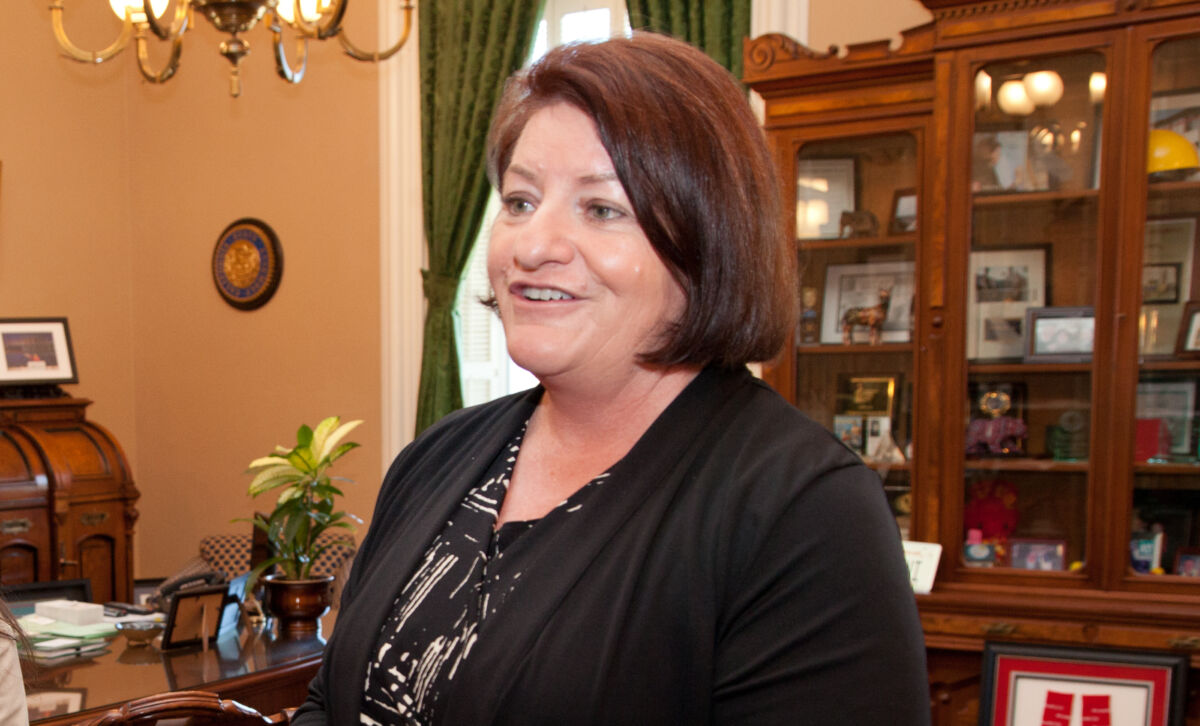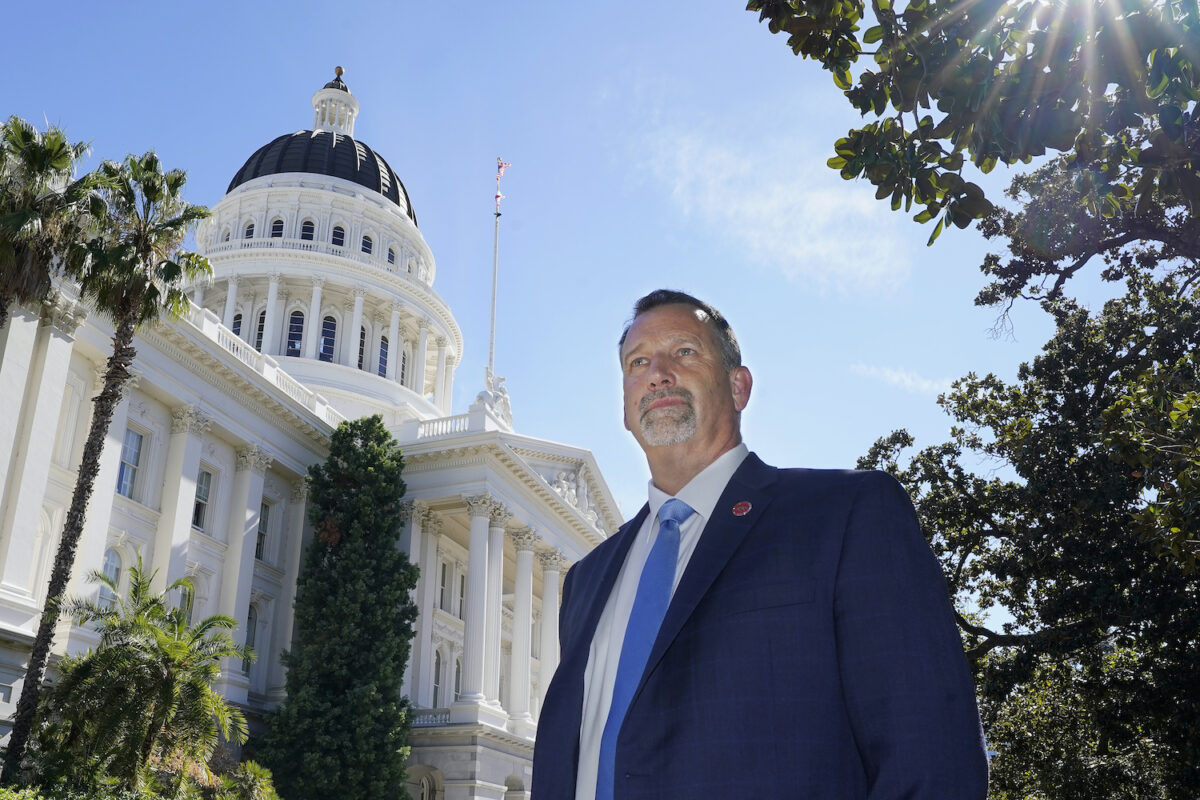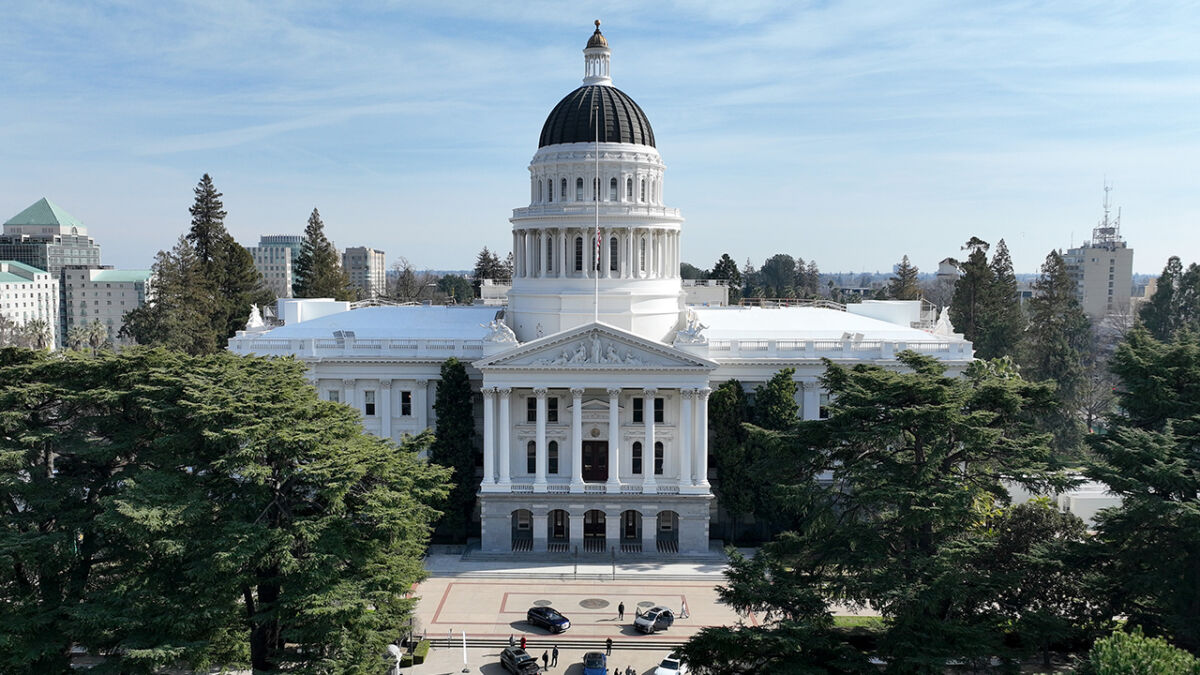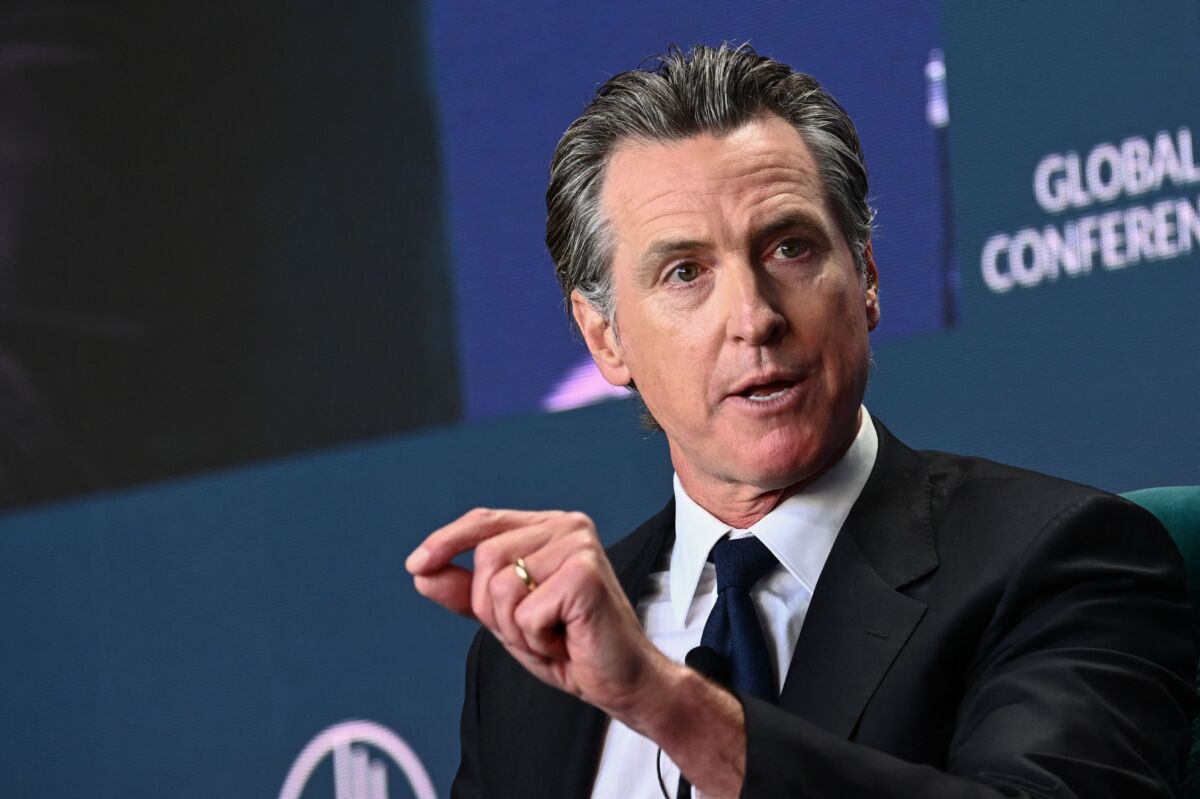With hours to spare before a July 1 deadline, California Gov. Gavin Newsom and the state Legislature agreed to the state’s 2023–24 fiscal year budget June 27, though Republicans argued against the proposal and the manner in which it was determined.
“In the face of continued global economic uncertainty, this budget increases our fiscal discipline by growing our budget reserves to a record $38 billion, while preserving historic investments in public education, health care, climate, and public safety,” Newsom said in a June 26 press release describing the then tentative agreement.
The $310.8 billion budget goes into effect Saturday.
Democratic leaders celebrated the budget agreement, though concessions were made, including cutting funding for a program to provide unemployment benefits to illegal immigrants.
“We started our budget process this time around with tough economic challenges, but one overarching goal: to protect California’s progress,” Senate President pro Tempore Toni Atkins (D-San Diego) said in the joint press release announcing the agreement. “This budget does exactly that—it allows us to close the budget gap, make targeted new investments, and provide services and resources for Californians and our communities without cuts to core programs or dipping into our reserves, and in fact builds those reserves.”

Legislators on the other side of the aisle, however, were skeptical.
“It’s amazing to me that California can go from a $100 billion surplus to a $30 billion deficit in one year,” Sen. Brian Dahle (R-Bieber) said while urging colleagues to oppose the budget.
Dahle suggested that Californians are most concerned about the cost of everyday expenses, listing statistics that report a 50 percent higher cost of living in the Golden State than the national average.
“If you want to help a disadvantaged person, you can’t just raise their pay, you have to lower the cost of living,” Dahle said. “For the future of California, we must address the high cost of living … This budget does nothing to lower [it].”

Republican lawmakers took exception to how the budget discussions occurred, with several telling The Epoch Times and arguing on the Assembly and Senate floor that they were excluded from the conversation. No Republican in either chamber voted for its approval.
“This year’s budget bills were negotiated and crafted by Legislative Democrat leadership and the Governor in private over the last week,” Assemblywoman Diane Dixon (R-Huntington Beach) told The Epoch Times in a statement June 27. “Republicans were not at the table to provide valuable insight on a spending reduction to reduce current and future deficits.”
The budget includes a deficit exceeding $30 billion, which the state’s Legislative Analyst’s Office has suggested could increase significantly if a recession were to occur—which economists suggest is likely.
“In fact, there’s nothing in the budget that addresses the $32 billion deficit. Spending has been pushed to future budgets and bond measures,” Dixon said. “In addition, the budget process lacks the fundamental transparency needed for the public to provide key concerns with major, contentious policy.”
Budgetary concerns include spending with limited oversight, with the costs being borne by the taxpayer, according to Dixon.
“Valuable taxpayer dollars are thrown at different programs that lack accountability: homelessness, transit or providing power to special interests groups through the re-establishment of the state Industrial Welfare Commission,” she said. “Our people and small businesses deserve better.”
On multiple occasions, the lack of debate regarding the budget amendments and so-called trailer bills—proposals added to the budget agreement—was brought to the floor, with several legislators stressing the need for open dialogue to secure democratic functions.
“This chaotic budget process is broken,” Assemblyman Vince Fong (R-Bakersfield) told lawmakers while opposing the proposal. “Closed door discussions … and a budget that never sees the light of day until it is constitutionally required, this type of back-room policy-making with no transparency is simply wrong, and if the shoe was on the other foot, you would say the same thing.”

The alleged one-sided nature of the budget process was a recurring theme, with Republican lawmakers criticizing the Democratic supermajority for excluding their perspectives.
“This is a terrible process, and we’re going along with it because the governor wants it,” Assemblyman James Gallagher (R-Yuba City) told his colleagues while urging a no vote. “This is not democracy.”
Some lawmakers took exception to the number of trailer bills accompanying the budget, with many including policy changes that were never vetted or debated by lawmakers, according to the minority leader.
“To abuse the process in that way is pretty shameless,” Gallagher said, bringing attention to funding provisions made in one such trailer bill to repurpose San Quentin prison, with millions dedicated to changing the institution from a death row facility to a less harsh environment.
“We’re making San Quentin into a day spa,” he said.
Democratic lawmakers, however, recognized the need to be prudent in a volatile economic climate but remained confident in the budget’s ability to weather uncertainty.
“We have to make sure we’re constantly vigilant in this economy … that’s why everything in this budget is to help Californians that need it the most,” Assemblyman Philip Ting (D-San Francisco) told lawmakers. “While there’s a little bit of kabuki here today, we agree on a lot.”
When confronted with opposition based on deficit concerns, Sen. John Laird (D-Santa Cruz) laid the blame for economic dilemmas and deficits on market forces.
“It is not the makings of the Legislature or human beings,” he told colleagues while supporting the budget proposal. “California overperforms in good times and underperforms in bad times.”

While noting the reliance on personal income tax and sales tax, Laird made no mention of the state’s widely reported declining population and its subsequent impact on state revenues.
In the other chamber, lawmakers warned their colleagues that the decisions being made by elected representatives were impacting Californians and leading to crime and homelessness.
“The cause of these problems comes from the policies coming from this building,” said Fong, the assemblyman from Bakersfield.
Deliberations reportedly were held up over the last week due to disagreements between Democratic lawmakers and the governor about how to manage environmental protection regulations that Newsom sought to avoid for a series of infrastructure projects, with the Sacramento to San Joaquin Delta tunnel project—which would move water between the two regions—a major sticking point.
Newsom ultimately agreed to discuss the $16 billion project outside of budget negotiations.
From The Epoch Times

